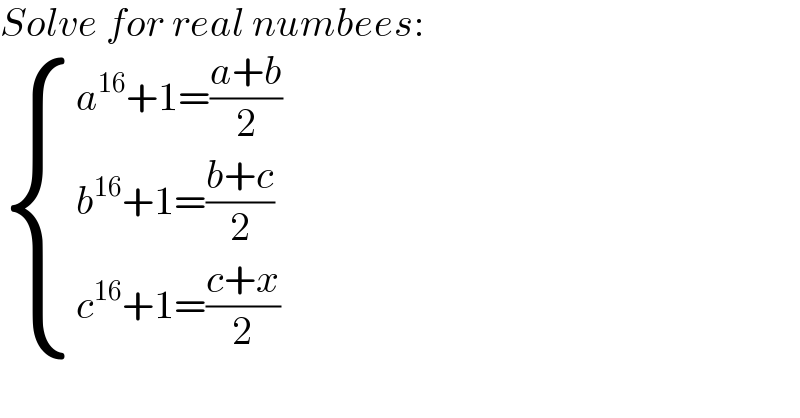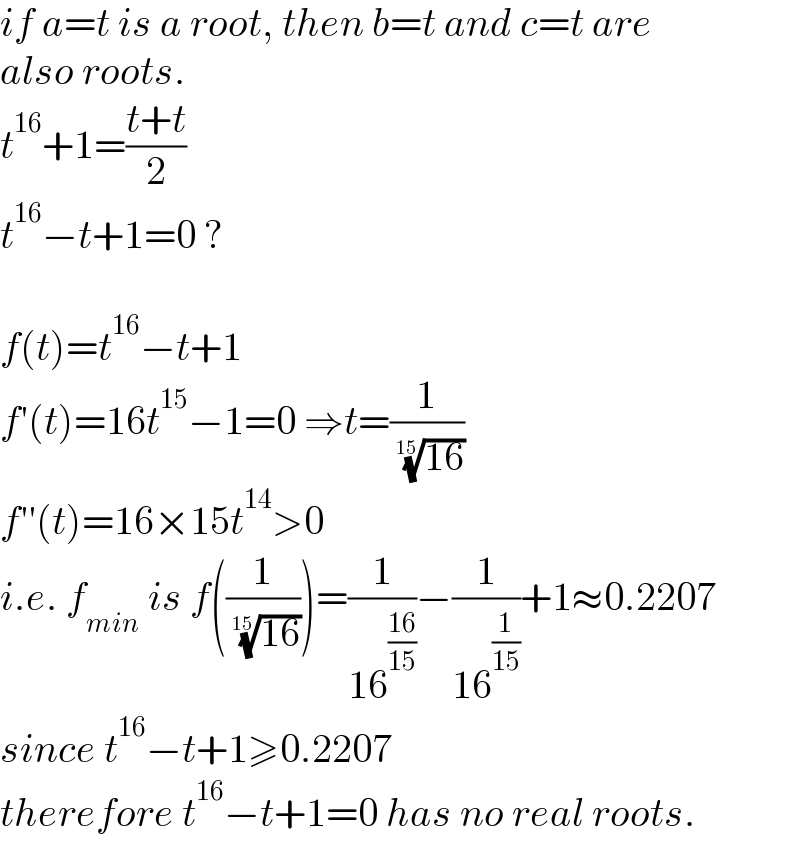
Question and Answers Forum
Question Number 138783 by mathdanisur last updated on 18/Apr/21

Commented by mr W last updated on 18/Apr/21

Commented by mathdanisur last updated on 18/Apr/21

Commented by mr W last updated on 18/Apr/21

Commented by mathdanisur last updated on 18/Apr/21

